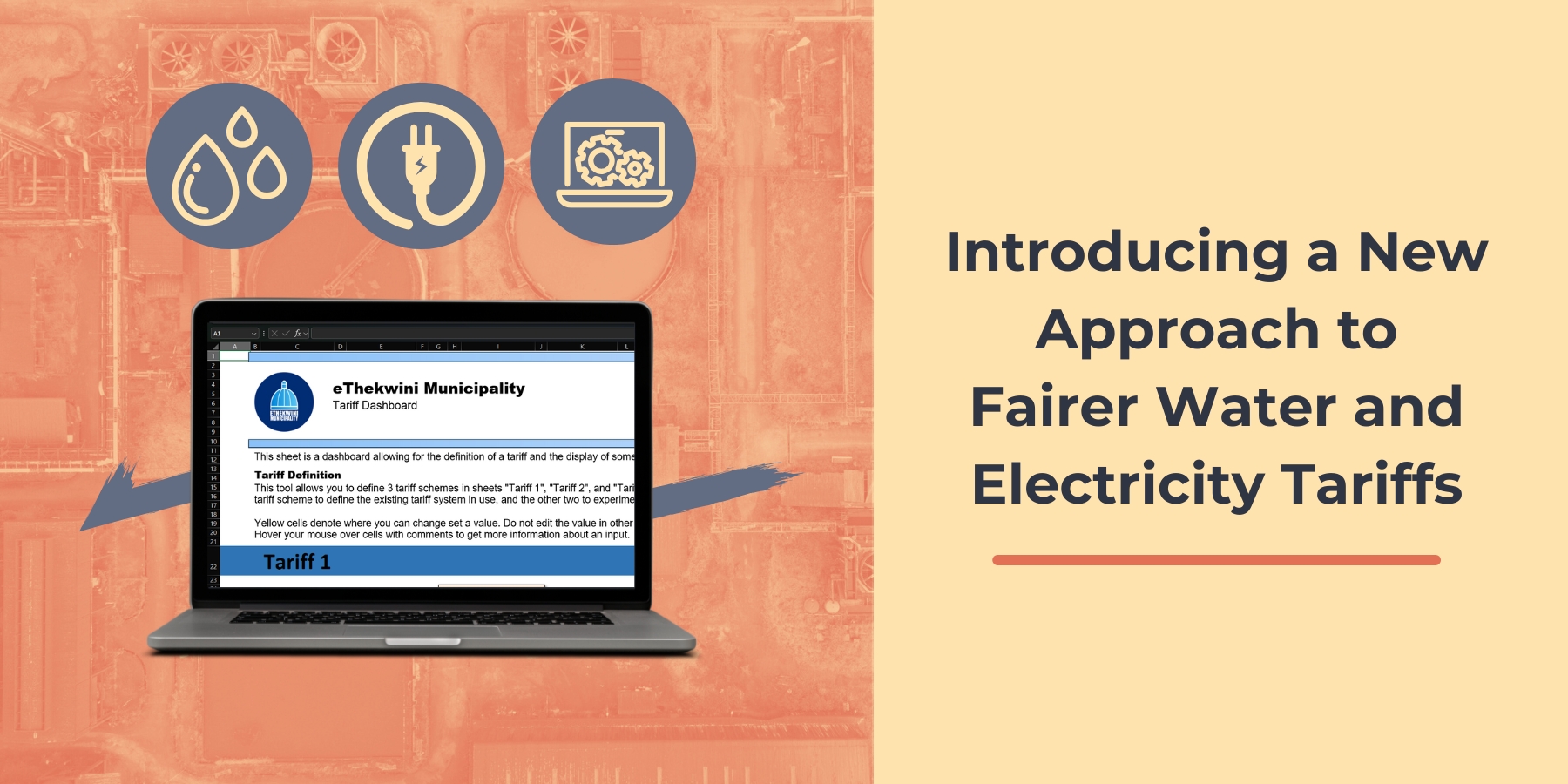How can cities balance affordability for residents with the financial sustainability needed to keep essential services running? This is the challenge at the heart of every decision about setting tariffs for utilities like water and electricity.
Open Cities Lab’s new tariff modelling tool, co-created with eThekwini Municipality and developed with the support of University of KwaZulu-Natal WASH Research and Development group, is designed to help municipalities answer this question. Built with real-world challenges in mind, the tool enables cities to design and compare fair, transparent, and equitable tariff structures that work for everyone. Funded by the EU, this work was the outcome of the Water Operators’ Partnership with Hamburg Wasser and eThekwini Municipality, Viva Con Agua, Open Cities Lab, and UKZN WASH R&D in the Global Water Operators’ Partnerships Alliance (GWOPA) - a UN-Habitat programme.
Why this tariff modelling tool matters
Tariff models are often difficult to compare, explain, and communicate to residents. This tool simplifies the process. Using actual consumption data over a period such as a month or year, it allows municipalities to:
- Explore different tariff options and their impacts on households and businesses
- Test how each model performs in terms of affordability, revenue generation, and sustainability
- Highlight which groups benefit and which may be disproportionately affected
The result is evidence-based pricing that is easier for finance teams to model, for residents to understand, and for civil society to engage with.
Who benefits from the tariff modelling tool?
Municipal finance departments gain a powerful decision-making tool that supports transparent, data-driven policy.
Residents benefit from more equitable pricing that takes affordability into account.
Civil society is empowered to hold municipalities accountable through clear, transparent tariff scenarios.
Building more sustainable cities
Fair and transparent pricing is essential for cities to provide reliable services, encourage efficient use of resources, and build public trust. By making tariff modelling easier and more inclusive, this tool helps cities move towards service delivery that is both financially sustainable and socially just.
Try it out and share your feedback
We want this tool to work for the people who use it most. If you’re interested in exploring the tariff modelling tool and helping shape its development, you can register to access it and provide feedback here. Your insights will help ensure it meets the needs of municipalities, residents, and civil society alike.



.jpg)
.jpg)
.jpg)





